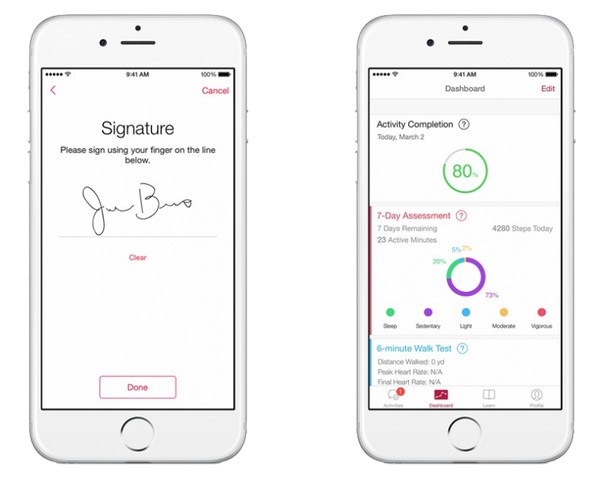Earlier we had reported on the tech industry shifting its focus towards health related parameters. Google’s Knowledge Graph integrated features to display curated health information and illustrations on search. And then another tech giant, Apple announcing its Medical ResearchKit. This program is started with an intent to collect data related to users’ health issues for further research. Apple has now released guidelines for the application developers to strengthen the consumer protection rules on iOS.
These guidelines were laid on Thursday (12th March), three days after the release of the ResearchKit. Apple said that the applications using the new Medical ResearchKit framework must comply with strict guidelines. These guidelines are laid to protect users’ privacy, safety and rights. The rules include prohibition of actions like storing the health data in iCloud, providing diagnoses without regulatory approval and data mining for advertising purposes. Similar rules were previously established for apps made by using Apple’s HealthKit. Apple HealthKit is a developer tool for third-party health apps on iOS.

Updated guidelines also include mandatory clause to make the participants aware of the research’s purpose. Applications will also include ‘procedures, risks and benefits’ and how the data is protected, handled and shared. The applications will instruct the users on ‘how to withdraw from the program’.
In other news related to the health research program, Bloomberg has reported that the program has received thousands of sign-ups. This has been recorded in less than twenty-four hours after its release. The report claims that Stanford University researchers received about 11,000 people signing up for MyHeart Counts. It is a cardiovascular disease app. Experts are of opinion that getting so many volunteers for a research program normally takes a year. But courtesy to Apple, such research programs will gain a lot of traction now.
Although the medical world is appreciating this initiative, some experts are still of the opinion that the program is bound to register misleading data. There has been a lot of skepticism on the authenticity of the data getting collected via such apps. But certainty on the program can only be offered after a beta testing of some application based on the Apple Medical ResearchKit.
